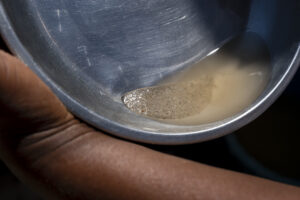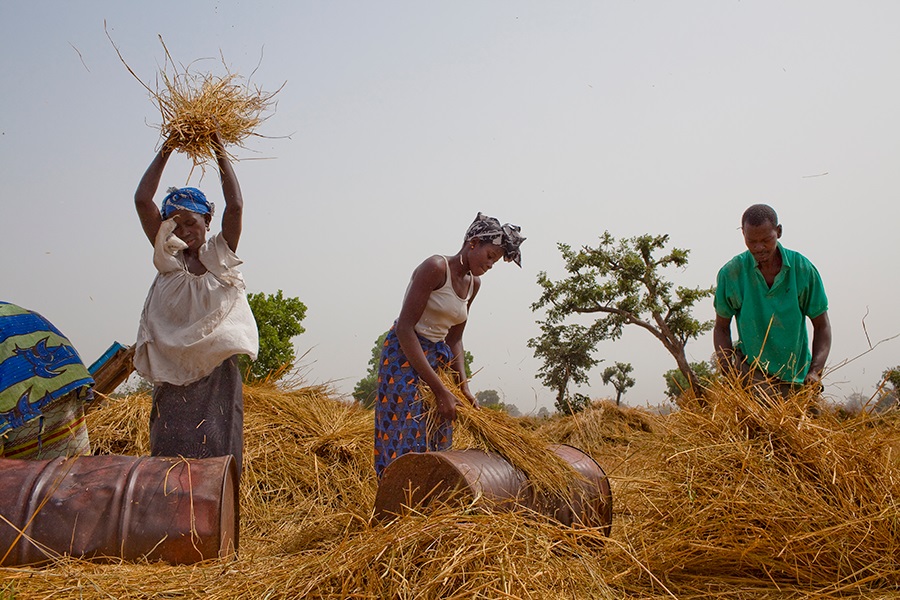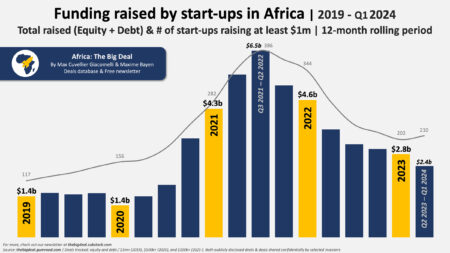- AfDB has okayed $16 million to power The Gambia’s Agriculture and Food Security Project, aimed at enhancing food security and the incomes of vulnerable populations.
- This funding will expand the cultivation of climate-resistant crops, increasing agricultural productivity and benefiting over 18,000 small-scale farmers, especially women and youth.
- Beyond agricultural development, the project incorporates social security, nutrition, and gender equality initiatives, including expanding school nutrition programs for over 203,900 pupils.
A total of $16.08 million is set to enhance production for millions of people employed in Gambia’s agriculture value chain. This follows a move by the African Development Bank Group (AFDB) to approve the fresh funding allocation to enhance the Gambia’s food security initiatives.
The country’s ambitious Agriculture and Food Security Project, initiated in 2021, received the financial support on March 4. With this injection of funds, The Gambia is poised to make significant advancements in its agricultural sector, with a focus on improving living standards for its most vulnerable populations.
Funding targets poorest communities in Gambia
The Global Agriculture and Food Security Project (GASFP) is the cornerstone of this initiative, a multilateral financing platform focused on uplifting the poorest communities in developing nations.
With this latest round of funding, The Gambia aims to achieve food and nutritional security while enhancing the income levels of vulnerable households. The project spans the five administrative regions of the Central River, Upper River, North Bank, Lower River, and West Coast, marking a significant step toward agricultural sustainability and resilience.
Post-supplemental funds for Gambia’s agriculture
The AfDB’s commitment is expected to substantially increase cultivating climate-resistant crops across the targeted regions. This expansion includes a notable increase in the areas allocated for plant crops, upland crops, and rice cultivation, ultimately leading to higher yields and improved food security.
Moreover, the additional funding will support a rise in productivity for staple crops such as rice and maize, with the project aiming to benefit a wider demographic of small-scale farmers, including a significant proportion of young people and women.
This strategic investment by the African Development Bank not only signifies robust confidence in The Gambia’s agricultural potential but also serves as a model for how targeted financial support can catalyze comprehensive development in critical sectors.
The increased funding is a testament to the project’s success and a reaffirmation of AfDB’s commitment to combating food insecurity and poverty in Africa. Because agriculture is a mainstay of The Gambia’s economy, engaging small-scale farmers in this expansive effort not only boosts local food production but also sets the stage for a more resilient agricultural sector capable of withstanding the challenges posed by climate change.
Read also: Expensive loans pushing agribusinesses to friends, family for financing
Youth and women set to benefit
The project’s emphasis on gender equality and youth involvement is particularly noteworthy, addressing the need for inclusive growth that benefits all segments of society. By ensuring that half of the direct beneficiaries are young people and more than half are women, the initiative recognizes the critical role these groups play in the agricultural value chain and their potential to drive sustainable community development.
This approach aligns with the broader goals of the Sustainable Development Goals (SDGs), particularly eradicating hunger and promoting gender equality.
Moreover, the project’s support for school nutrition programs not only enhances students’ health and learning capabilities but also creates a stable market for local produce, thereby reinforcing the link between agricultural development and educational outcomes.
This symbiotic relationship between agriculture and education underlines the multifaceted impact of the AfDB’s investment, extending beyond immediate economic benefits to contribute to long-term social and environmental well-being.
As The Gambia continues to navigate its path toward agricultural advancement, support from the AfDB and its partners remains a cornerstone of this journey. Financial resources are leveraged in this project to create lasting change, empower communities, and lay the groundwork for a prosperous, sustainable future.
Beyond augmenting crop production, the project underscores a holistic approach to agricultural development, encompassing social security, nutrition, and gender equality initiatives.
One of the key outcomes of this comprehensive strategy is the expansion of school nutrition programs, set to benefit over 200,000 pupils, with a special focus on girls, and the inclusion of deworming supplements to ensure their health and well-being.
This integrated approach not only aims to elevate agricultural productivity but also to fortify the foundation of community health and education within The Gambia.
Read also: AfDB’s $150m plan to accelerate financial inclusion, poverty eradication
AfDB’s funding has reached 64,000 producers in The Gambia
Since its inception, the project has already demonstrated significant progress, reaching nearly 64,000 beneficiaries and achieving impressive production outcomes across various agricultural domains.
The AfDB’s initial grant, along with the government’s counterpart funding, has set the stage for a transformative impact on The Gambia’s agricultural landscape.
With this additional funding, the project is on course to enrich the lives of thousands more, contributing to the broader objectives of food security, economic development, and societal well-being in The Gambia.
As the project evolves, it stands as a testament to the power of targeted investment in catalyzing sustainable development and nurturing the potential of Africa’s agricultural sector.











